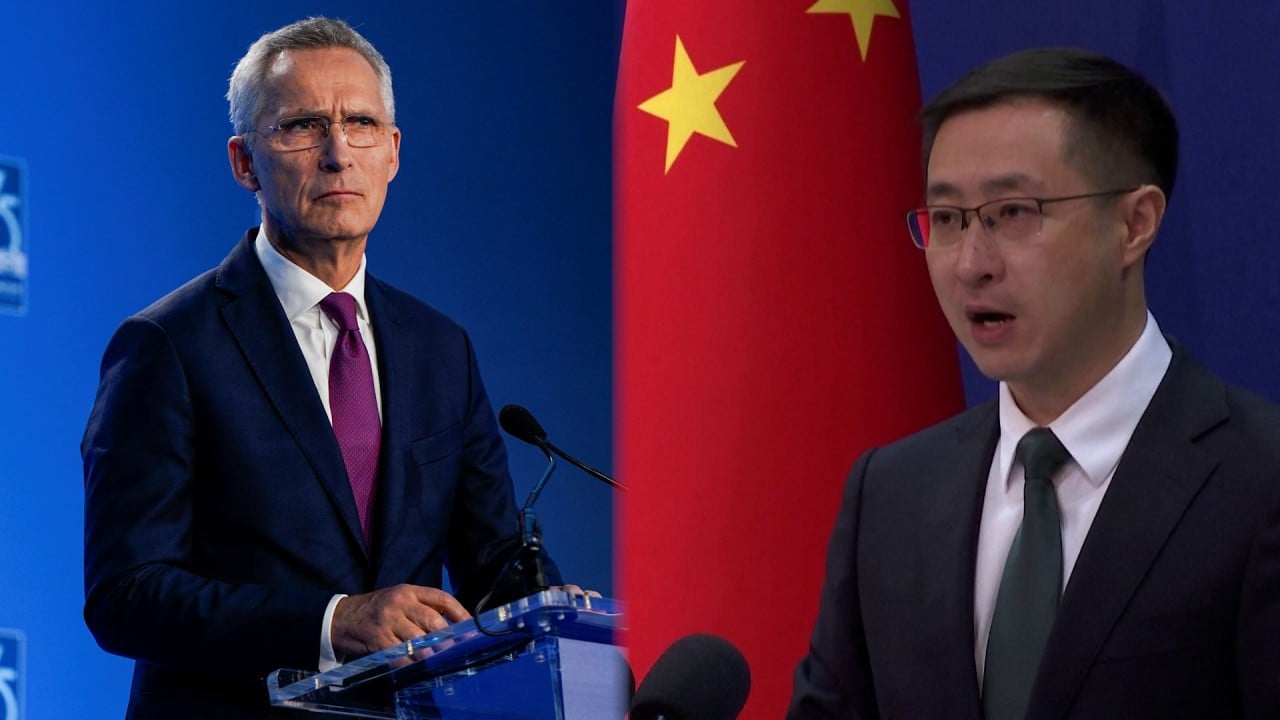Biden warns China’s Xi of ‘price’ over aid to Russia as Nato summit ends
- Nato secretary general assails authoritarian regimes and Beijing’s actions in Hong Kong, South China Sea and Taiwan

“We have to make sure that [Chinese President Xi Jinping] understands there’s a price to pay for undercutting both the Pacific basin as well as Europe, and it relates to Russia and dealing with Ukraine”, he said while briefing the press at the conclusion of Nato’s annual summit in Washington.
Biden’s appearance on Thursday evening was his first one-on-one interaction with the press in eight months. The 81-year-old has come under intense pressure from fellow Democrats about his chances for re-election this fall following his poor performance in a debate against his presumptive Republican opponent, former president Donald Trump, last month.
Asked if he will be able to “handle” Russian President Vladimir Putin and Xi a few years from now, Biden said “I’m dealing with Xi right now” and he had established “direct contact” with the Chinese leader since their last meeting.

